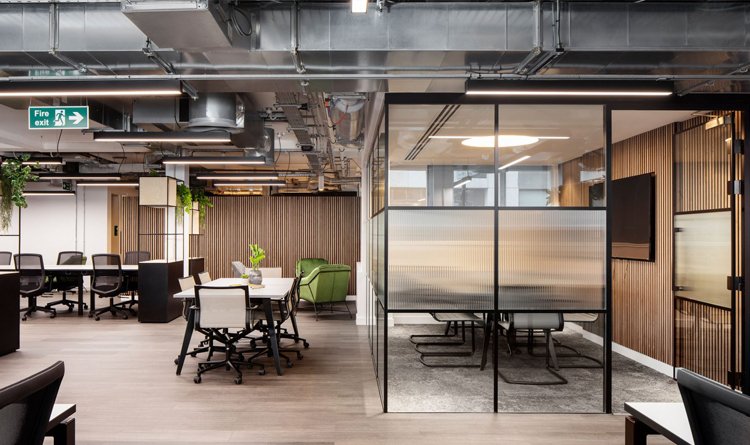
Transitioning From Couch to Coworking
If you’re working from home, moving to a coworking space or dedicated office marks a significant step for any entrepreneur. Moving from remote work to a dedicated workspace can boost productivity, foster a more cohesive company culture, and create new opportunities. We will explore the value of working in an office and provide essential tips for entrepreneurs overcoming remote work challenges to establish a productive work environment.
Remote work comes with its challenges. Work-from-home fatigue has become a common experience among remote workers. This fatigue often results from prolonged isolation, a lack of boundaries, and excessive screen time. It’s important to prioritise self-care to avoid burnout. Remote work can blur the lines between personal and professional time, making it harder to step away from work.
How To Improve Your Working From Home Routine
Following a routine that mirrors an office environment can provide structure and reduce the mental strain of an unstructured day. Start and end work at consistent times, and schedule breaks to add rhythm to your day.
Establishing boundaries when working from home is essential. Clearly define your working hours and avoid the temptation to check email or complete tasks outside these hours. A structured schedule helps maintain a healthy balance and keeps work from encroaching on personal time.
Take Regular Breaks & Limit Screen Time
Studies show that regular breaks can increase productivity and focus. Whether you take five minutes or a lunch break away from your desk, taking time for yourself during the day helps prevent burnout and keeps your energy levels up.
Frequent video meetings and continuous screen exposure contribute to mental fatigue. Try to balance digital communication with other methods, like phone calls or brief in-person meetings. Reducing screen time helps reduce stress and keeps you refreshed.

Keeping Active When Working From Home
Physical activity boosts mood and helps relieve tension from prolonged sitting. Try to schedule time for brief physical activities, such as stretching, walking, or a quick workout. Moving your body throughout the day can refresh your focus and improve your wellbeing.
Create a Designated Space to Work From Home
If you are working from home, set up a dedicated workspace. Having a dedicated office space provides separation between personal and professional life. An office environment reduces home distractions, allowing you and your team to focus on tasks.
Preventing Remote Work Loneliness
Remote work can sometimes lead to feelings of isolation due to limited in-person interactions and physical distance from colleagues. Remote workers may feel disconnected from their peers without the spontaneous conversations, team-building activities, or casual social exchanges that typically happen in a traditional office setting.
Create Virtual Connections
If remote work is part of your long-term structure, regular virtual catch-ups and casual coffee chats can help maintain team cohesion. These social interactions help team members stay connected, reducing feelings of isolation.

Organise Work From Home Meetups & Join Networking Groups
If you work from home or in a remote role, arrange occasional in-person gatherings. Whether for a team-building activity or a social event, these meetups help solidify team bonds and create memorable experiences.
Professional networking groups or coworking communities can provide additional support and opportunities for social interaction. Joining an industry-specific community or targeted group on LinkedIn can help you stay engaged, build relationships, and learn from others facing similar challenges.
Leveraging the Coworking Scene
Working from home can sometimes feel isolating or distracting, which is why many people turn to coworking centres for a change of environment. For example, a WeWork Coworking Space offers the opportunity to connect with like-minded professionals, foster collaboration, and create a clear boundary between work and home life.

Using a Physical Space to Reflect Your Brand
An office provides the opportunity to create a physical representation of your brand. Clients, partners, and potential hires can visit your workspace to gain a tangible sense of your identity, reinforcing professionalism and building trust. Consider open layouts for collaborative work or designated private areas for focused tasks.
The office environment you create should align with your company culture. For example, a tech company might prefer an open-plan startup office to encourage teamwork. A consulting firm may need quieter, private spaces for focused work. Details such as colour, decor, and branding elements can help make the office feel cohesive and inspiring. Investing in comfortable, ergonomic furniture and adding personal touches, such as plants and artwork, can create a positive, productive work environment.
Open More Opportunities for Collaboration
Working in a shared workspace can foster spontaneous collaboration and innovation. In an office setting, colleagues can brainstorm ideas more naturally, solve problems more quickly, and participate in discussions that strengthen relationships and enhance creativity.
Transitioning from Home Office to your Workplace
Moving to a commercial office space is a significant milestone for a growing business, filled with both excitement and apprehension. On one hand, it signifies a tangible step forward, indicating that the company has reached a point where it requires more structure, space, and resources to support its expanding team and operations. A dedicated professional environment can foster a sense of pride and opportunity, providing employees with a new setting to collaborate, innovate, and thrive.
Ultimately, the transition to a commercial office space brings both challenges and rewards. It marks an essential chapter in the company’s journey and requires careful planning to ensure a smooth, successful transition.

Set a Realistic Budget
Moving into a new workspace involves initial expenses, including deposits, furniture, and technology costs. If you are considering leasing a property, remember to factor in additional fees, such as utilities and maintenance. Create a budget that aligns with your cash flow, and consider setting aside an emergency fund.
Choose a Flexible Office Solution
For many entrepreneurs, a flexible workspace, such as a WeWork coworking space in London, is an ideal solution. Look for short-term lease options, serviced office spaces, or coworking memberships that allow you to scale up or down as your business grows. These options provide flexibility and help manage costs.
Life After the Work From Home Movement.
Whether you’re moving into a shared space or your own private office, this milestone is an opportunity to elevate your business and create an environment where your team can thrive. By implementing the guide’s ideas, you can foster a strong culture, and by prioritising self-care for yourself and your team, you can create a workspace that reflects your brand and boosts morale.
For a closer look at the office spaces available and to explore options tailored to your needs, feel free to browse our website or contact our office broker team. We’re here to help make the office search as seamless and rewarding as possible—and to guide you toward a workspace that truly aligns with your company’s vision.




